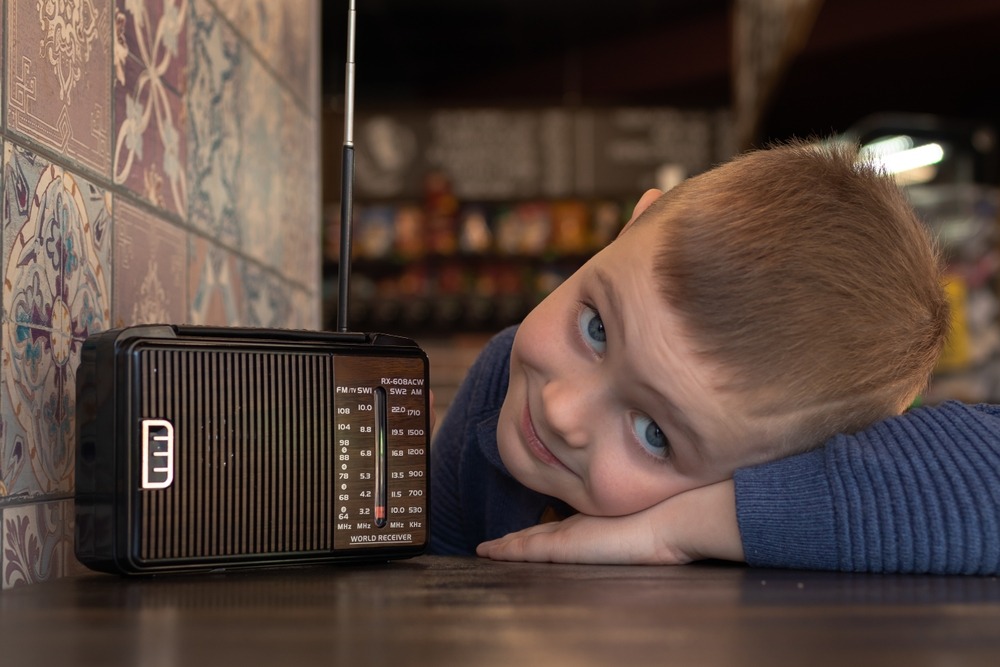
One thing about this blog – and especially after doing it consistently for 18+ years now – you meet a lot of people along the way. Because of my writing and the topic of radio (and related things), many posts touch the heartstrings of a lot of people, whether they’re still in the game or retired or were forced out of the business.
As we’ve learned over the years from our AQ research studies conducted among current and on-the-beach radio personalities, few get into the business to make a lot of money or for stability. Most radio people are in it for the fun factor, as well as to entertain. I suspect if we ran a similar study for public radio, we’d run into a lot of people who were excited to deliver credible broadcast journalism content. On the Christian side, many are likely to tell you their goal of being on the airwaves is to inspire and help enrich people’s lives. Again, no mention of money or even fame.
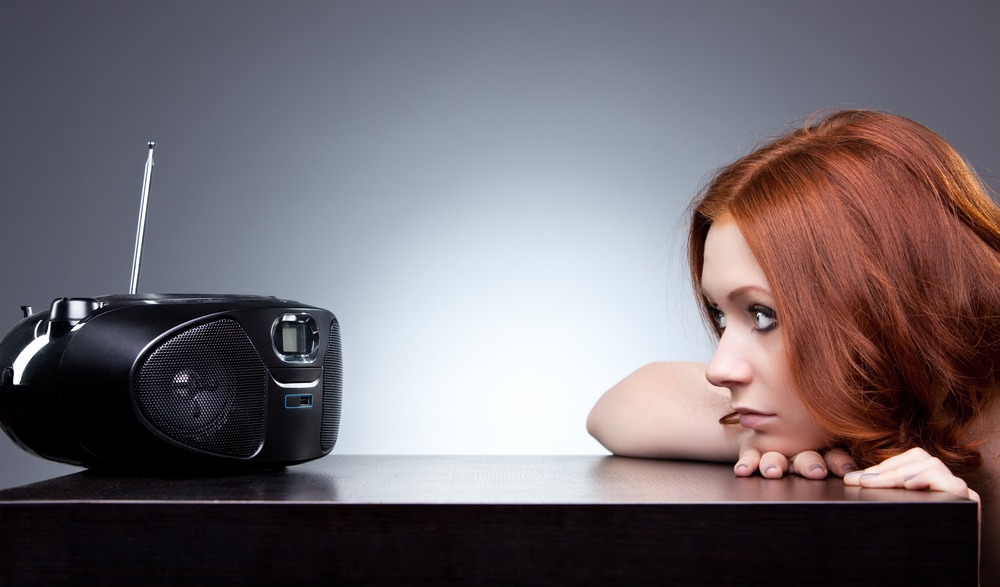 When you work in radio, you view the world of audio entertainment differently than the average consumer. I think most of us are cognizant of this skew or bias in our tastes. We typically spend more time listening to radio in general, and our stations specifically, than if we were an average citizen.
When you work in radio, you view the world of audio entertainment differently than the average consumer. I think most of us are cognizant of this skew or bias in our tastes. We typically spend more time listening to radio in general, and our stations specifically, than if we were an average citizen.
But what happens when a dyed-in-the-wool radio person gets out of the business for whatever the reason? Do their habits and tastes change? Do they listen differently, and do they gravitate to options they never listened to when they were drawing a check from a radio company? What happens when they no longer have to listen to AM/FM radio?
And how does a radio ex-pat process the world of audio entertainment from the outside? On the one hand, they have a great deal of knowledge the average listener lacks. They know the inner workings of the business – how music is selected, how research is conducted and applied, the impact of sales pressures and their resultant effect on commercials (quality and quantity).
In short, they’ve spent years in radio’s “sausage factory.” They’ve seen the unvarnished truth, and now they’re on the outside listening in.
So how can we gain that perspective – short of quitting our jobs and finding out for ourselves?
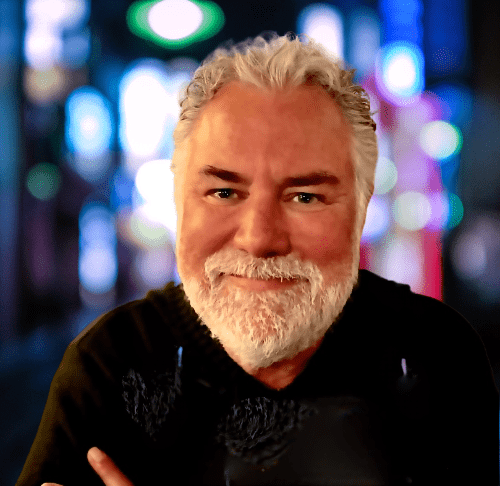
Thanks to Chuck Taylor, we can continue our mission in radio, whatever it may be. But we would be smart to listen to the wizened perspective of someone who’s been there and done that in radio. For many years, Chuck worked as a scribe, following the radio industry and reporting on it, first for Billboard and later for Inside Radio before calling it quits. What has he learned that perhaps we just can’ t fathom? What has he experienced as a civilian that is light years away from how most of us are up close and personally involved with the industry?
What does he now know that we don’t?
Chuck reached out to me the other day, and ended up writing a detailed essay about how his listening patterns have changed since leaving the familiar confines of the radio business.
Below is Chuck’s story: what he listens to and why. How he now makes decisions about how to spend his time with audio. What he puts up with and what he no longer has to. I edited out some of his personal greeting to me, but Chuck’s assessment of broadcast radio and his options are unvarnished – copied and pasted into this post.
Hello, Fred, from your ole buddy Chuck Taylor. I’ve been an “outsider” from the radio industry since I left Inside Radio a few years ago… so my perspective is quite a bit different from the “rah rah” that comes with covering the broadcasting industry.
Here’s what I’ve been thinking about a great deal regarding my own listening habits–and I offer this as food for thought to you guys, since you’re always analyzing AND offer a perspective that is not always cushioned with a subjective slant toward AM/FM.
 Driving my sweet Audi Q8 (pictured) with all of its programmed stations, I am able to hit the “list” button… Thus, for all of my SiriusXM channels, I can see exactly what’s playing in the moment and choose whatever fits my mood. However, for all of the programmed FM channels, I get a blank slate with the station call letters… meaning if, by chance, I find nothing among my 25 SiriusXM faves, I MAY default to see what’s playing on FM… and then, typically, either the title and artist are not displayed (I live in Norfolk/VA Beach, VA), there is missing info… or the songs are (often) whatever was previously playing and do not update.
Driving my sweet Audi Q8 (pictured) with all of its programmed stations, I am able to hit the “list” button… Thus, for all of my SiriusXM channels, I can see exactly what’s playing in the moment and choose whatever fits my mood. However, for all of the programmed FM channels, I get a blank slate with the station call letters… meaning if, by chance, I find nothing among my 25 SiriusXM faves, I MAY default to see what’s playing on FM… and then, typically, either the title and artist are not displayed (I live in Norfolk/VA Beach, VA), there is missing info… or the songs are (often) whatever was previously playing and do not update.
The industry loves to believe that the masses still love FM radio. I’m someone that actually does love radio, who has spent my career supporting it. And yet, when I’m driving, I’m either listening to Sirius or my own curated Spotify playlists… and, oh yeah, every once in a while, I recall that there is another option: FM.
That is, until the car guy starts screaming at me with an ad that sounds like it’s from 1975. Seriously, this still happens… And then I’m over and out. And yes, I’m in a market with iHeart and Audacy. This is not podunk radio.
In the house… it’s Alexa 100% of the time… playing Amazon Prime or SiriusXM and the occasional Pandora. Typically, I ask for a genre, like “90s pop” or “80s country” or “Sheena Easton hits.” Honestly, Fred, in the past 5 years, I cannot remember ever asking for “Lite FM” or “WKTU New York.”
Blinders off, radio industry? It’s 2023 and there is no excuse for tech to remain… with its collective head in the sand.
Respectfully, your friend,
=Chuck Taylor=
Depressing? You bet.
And I’ll also freely admit, Chuck’s an N of 1. His comments represent no one else but his own experience with content and gadgetry since leaving radio world.
If you’re doing perceptual research, Chuck’s experiences don’t match up. But in many studies stations commission, there’s often a daily or weekly requirement respondents have to listen to AM/FM radio during a typical week.
And Chuck’s comments don’t resemble Nielsen, but of course, we don’t see satellite radio, podcasts, and lots of other audio options in the ratings we pore over.
Perhaps most importantly, Chuck’s post-radio listening patterns deviate from Edison’s “Share of Ear” and “Share of Car” data. In those studies, radio is diminished, but still dominating overall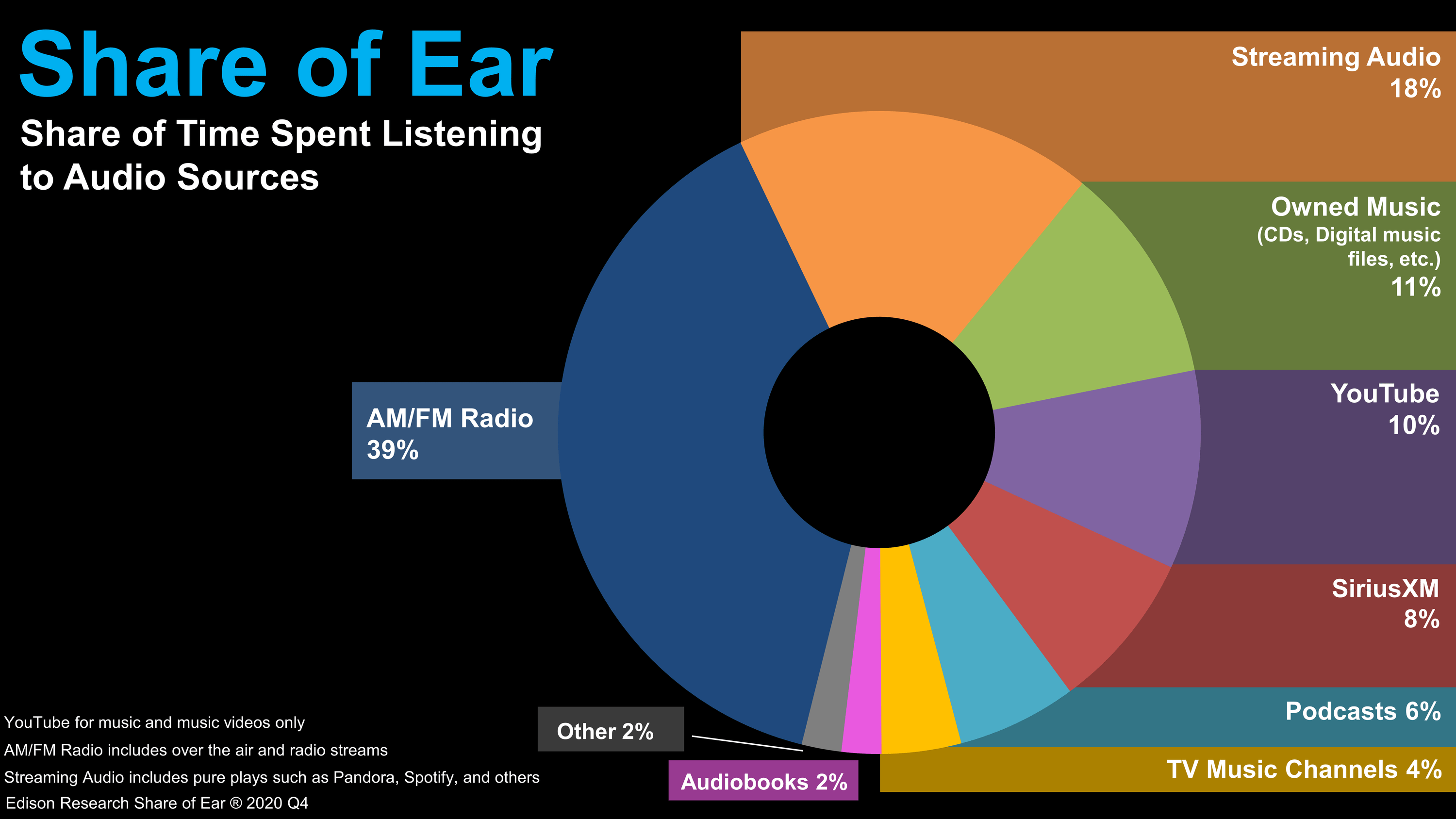 listening.
listening.
So how do we perceive Chuck’s comments and put them in perspective? Is he on the leading – or even the bleeding – edge and therefore not truly representative of consumers his age? Note that he doesn’t mention personalities or communities served by his local stations. Maybe he just doesn’t care about those qualities when he jumps into his well-equipped Audi.
Maybe some of his comments are driven by his very nice car. We know from our string of Techsurveys that people who drive truly connected cars gravitate away from radio. In Chuck’s case, his Audi is on the high end of the automotive curve. That means he gets a great dashboard metadata experience from SiriusXM and Spotify. But as he points out, when he flips over to FM it’s like the metadata equivalent of a crapshoot. He might actually tune in a station that looks pretty good in his Audi. But it’s probably just as likely, the display of the next station will be substandard – even embarrassing.
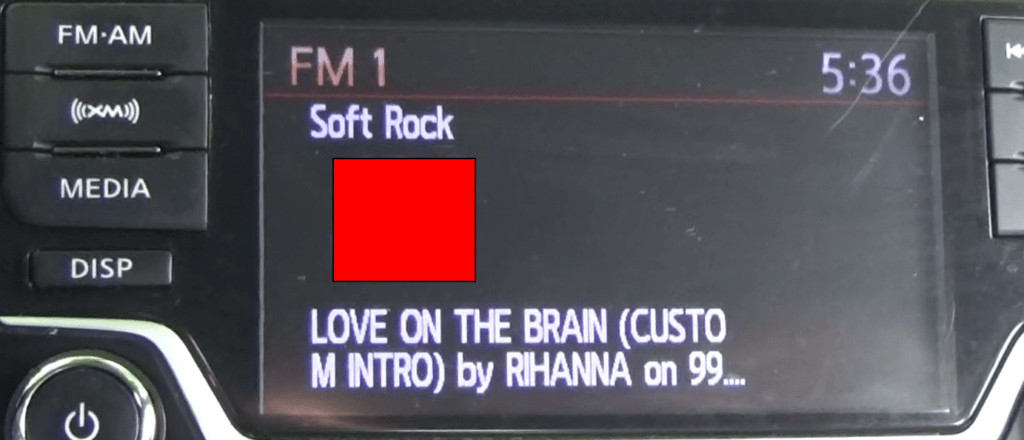 We’ve talked about the importance of dashboard metadata for several years now. It matters. And the better and newer the car or truck, the greater the likelihood a station owned by a company that just doesn’t care about this stuff looks sub-par. This kind of checkered, inconsistent experience is erosive to radio brands and the medium itself.
We’ve talked about the importance of dashboard metadata for several years now. It matters. And the better and newer the car or truck, the greater the likelihood a station owned by a company that just doesn’t care about this stuff looks sub-par. This kind of checkered, inconsistent experience is erosive to radio brands and the medium itself.
The bar is simply higher, but many radio companies still haven’t gotten the memo. It wasn’t that many years ago when arrogant broadcasters actually asked the question – “Where else are they gonna go?” – when defending a radio product that just wasn’t up to snuff. The good news is that no one asks that question anymore. Sadly, we know the answer.
For a guy like Chuck who knows Bluetooth from “Blue Moon,” he doesn’t have to put up with a crappy listening experience. And between his car and Alexa at home, it is easier to find audio entertainment that delivers.
Is he one of those jaded ex-radio pros with an axe to grind? I don’t think so. The Chuck Taylor I knew enjoyed his job, interviewing everyone from Elton John to Clive Davis.
As I read (and reread) his comments, I started getting a nudge that I had recently seen some data that strangely reflected what Chuck was talking about. And then it hit me. When we ask those who tell us they’re listening to less radio since a year ago, we give them a list of potential negatives and turn-offs, and ask these respondents which of them are the “culprits” – the reason why they’re consuming less radio since 2022.
Below is that chart for Techsurvey 2023. It isolates those spending less time with radio – all told, 12% of our overall study. At the top of the list (purple bars) are the two issues that have become more prominent since the pandemic – “lifestyle changes” and “spending less time in a car.” For radio broadcasters, the good news is that it’s no longer 2020, the peak of COVID. And both numbers are coming down. Many people’s lives have stabilized, and even more are back behind the wheel. Before this year is out, hopefully more and more of them will be commuting to and from work.
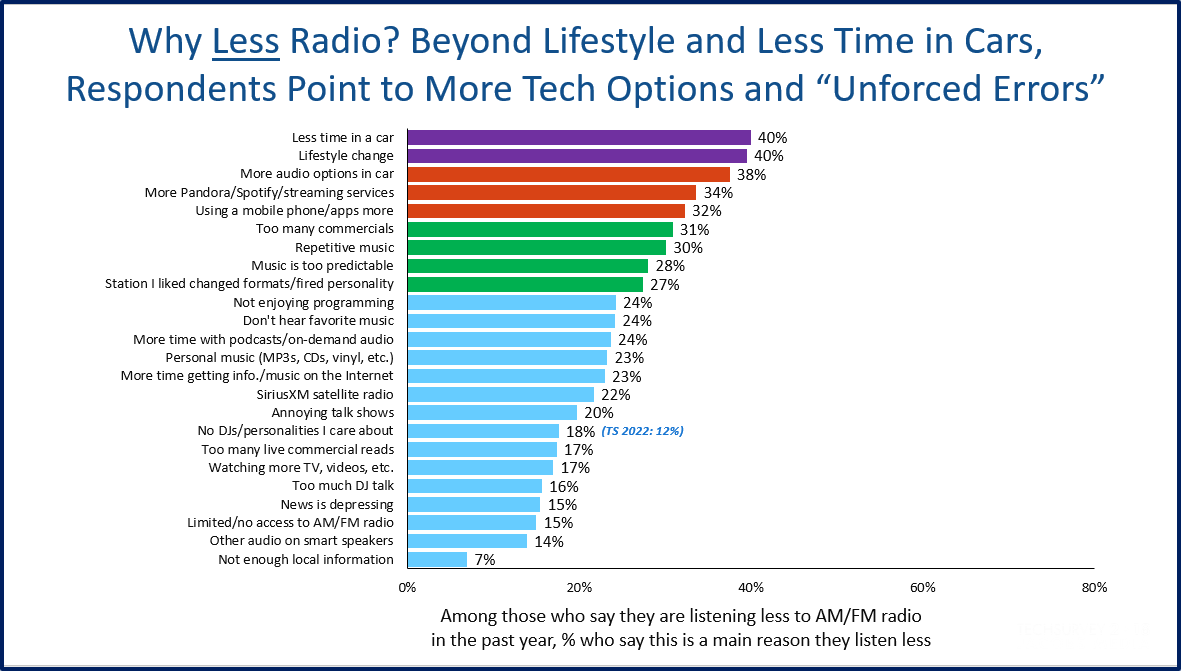
But when we get to the next rung of reasons these respondents are logging fewer hours with radio nowadays, the other negatives naturally cluster as you can see above. In red, we see technology coming into play. And you can hear Chuck Taylor’s words when you look at these factors that draw people away from the AM/FM bands. More options in the car, streaming services, and content via mobile apps are impacting the ways in which people make their choices.
But below them in green – all mentioned by at least one in four of those spending less time with broadcast radio – are those self-inflicted wounds that Chuck also addressed in his listening self-analysis – the commercials, repetitive and predictable music, and changes in format or talent lineups. These all play a role in how consumers are allotting their time to audio entertainment, and the diminishing piece AM/FM is earning.
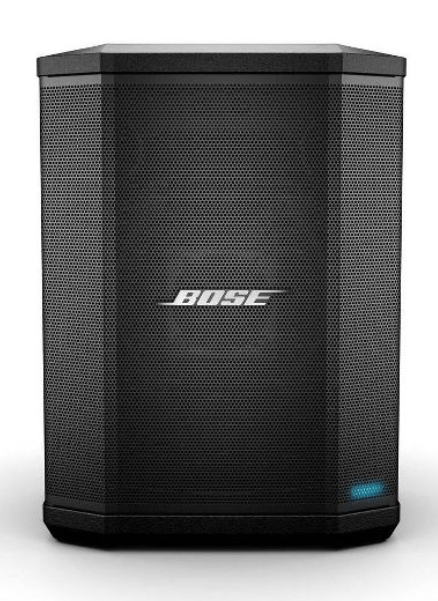 So let’s do this. Our collective assignment this upcoming long holiday weekend is to pay particular attention to those we spend time with – at sporting events, barbeques, parties, family gatherings, and anywhere audio is being played (other than live music, of course).
So let’s do this. Our collective assignment this upcoming long holiday weekend is to pay particular attention to those we spend time with – at sporting events, barbeques, parties, family gatherings, and anywhere audio is being played (other than live music, of course).
What gadgets are you seeing? What choices are hosts and guests making? What can we learn from simply watching our fellow consumers use media when they’re got some time off over a long holiday weekend.
Long-time JacoBLOG readers will recall how the late Clayton Christenson (pictured) urged us to learn about what and why people do by first observing them in their natural states, and then  asking them why they make the choices they make. As he might have said, what job are they hiring that Bluetooth mp3 player to do out on the patio or on the boat? When they turn to a specific channel or outlet, how do they want it to make them feel?
asking them why they make the choices they make. As he might have said, what job are they hiring that Bluetooth mp3 player to do out on the patio or on the boat? When they turn to a specific channel or outlet, how do they want it to make them feel?
What can we do with our brands, limitations and all, to provide better listener experiences in an environment that gets more crowded by the month? What can we do those other platforms can’t to deliver a positive product consumers will come back to? We have to prepare ourselves for the reality that what got us here isn’t going to be anywhere near as effective in the digital landscape.
We may not get every Chuck Taylor back, but even he admits he lands on FM radio now and then. What he hears when he shows up to listen to a real radio station might be the beginning of a new habit. At the very least, radio might get a few more quarter-hours each week.
And while Chuck didn’t say it, he may be like a lot of people of his generation – hoping he actually hears something on the radio that satisfies his emotional and musical needs.
It’s a start.
Thanks to Chuck Taylor for the check-in. What’s he been up to since he walked away from being a music/radio journalist? For the last many years, he’s turned his truly palatial home in Norfolk in Virginia into an AirBnB, and one of the coolest wedding venues you’ve ever seen. The reviews tell the story – Chuck is the consummate host, with the joie de vivre to make his guests keep coming back for more. You can check Chuck’s digs out here.
- Media And Technology In 2025: Believe It Or Not! - April 18, 2025
- In Radio, You Just Never Know - April 17, 2025
- The Secret To Making A Great Podcast (And Great Radio) - April 16, 2025




I am betting that there are many of others that, at one time, considered ourselves to be radio “lifers.” We felt as if we were cheating if we made the choice of our audio entertainment something other than our “significant other” of radio. Be it mixtape/Cd, Pandora or Spotify, or podcast, you don’t feel as bad when you realize that your “significant other” of radio has only been going through the motions of the relationship with you and other listeners for years. As anyone in a successful long time personal relationship can attest, being there is different than “being there.” With large percentages of the programming day taken up by automated music and voice tracking, live and local becoming a thing of the past and stations being run and operated by Overlords halfway across the country, a listener can’t help but feel they are being taken for granted.
Thanks for bringing up the truth, ugly as it is, but Mr. Jacobs, it takes someone like you to bring this up to the industry, and I remain a fan due to this.
P.S. – Big Chuck Taylor fan during his Billboard days. Looked forward to his articles every week.
Fred mentioned that Chuck is doing well in his current activity as a B&B host by treating his guests to joie de vivre. Isn’t that the key? To an innkeeper there’s no dichotomy between customers and guests; but most radio listeners know or sense subliminally that they’re not the customers. Why else would they be expected to tolerate the indignities radio subjects them to? Even as I write this, with my favorite commercial station playing in my living room, that archetypal hideous ’70s-style ad is playing (with 10″ of prefatory algorithm-accelerated disclaimer sotto voce), daring me to change the station.
That I even have a radio in my living room, let alone actually listen to it, betrays me as a radio lifer. But even I begin to wonder whether I am unwisely remaining in an abusive relationship.
The similarities I have with Chuck don’t start and end with the fact we apparently live in the same city and I want to rent his AB&B! (LOL).
They continue with his assessment of the changing audio (and video) environment. The barriers to entry on media consumption are basically non existent anymore…and as a guy who is now truly a full consumer of my audio. I am in charge of what I listen to and when. The old “we survived cassettes and 8tracks” is so off as we match around with computers in our pockets. Totally different landscape.
Very important price today. Hope it gains some real traction.
Yikes. Make that “piece”.
This resonates for me as well. As a former on-air host, PD and GM, now running a trade association where I’m no longer responsible for the flawless execution of a radio station, I consider myself a listener first. My at-home listening to radio has ceased entirely, I am only listening to my own music or a streaming service at home. And while I still sample news/talk stations around the country, I find it extremely challenging to listen to news programming anymore. I hear the bias now that I didn’t hear before and all the news is terrifying and sad, so I consume most of my news online now. I still listen to radio in the car for my 10 minute commute in my 2013 Subaru, but I’ve switched my listening to the local classical station as that seems to be best for my mood these days. Radio isn’t going to dramatically change people’s behavior, folks aren’t going to hang around to listen for a backsell when your meta-data isn’t available, which it isn’t most of the time. Radio is no longer alone on the top of the audio hill, its now crowded up there and there are others who do a much better job of giving consumers the listening experience they value. Breaks my heart to say that, but its true. Filling hours and hitting posts is not the answer to this challenge. Good enough is no longer good enough – it never was. Radio can’t just be radio anymore.
Chuck Taylor? Wow. He and I wandered the same halls at IMAS Publishing (Radio World) in the mid-1990s, before he took off for Billboard. Now, we’re wandering the same peninsula: he in Norfolk VA and me up Rt 64 in Williamsburg.
Everything he has said (and continues to say) about radio should be permanently chiseled into cliffsides for the whole industry to read and heed.
As I was exiting the biz in 2016, I actually asked myself how my listening habits would change now that it wasn’t part of my job to listen. The results after several years;
1. I still listen to NPR either locally on FM or on Sirius/XM.
2. I never thought I’d pay for a Sirius/XM subscription, but I do.
3. Rarely listen to FM broadcast music radio in the car.
4. Never listen to FM radio in the home.
5. I enjoy podcasts and my own playlists.
After spending nearly 30 years in radio, I know that’s not what the biz wants to hear, but I can tell you I’m not an isolated case.
Agree..100% about Chuck’s experience. And the comment: “depressing.” Maybe I haven’t been in “radio remission” long enough to be an objective listener. Either way this rings true for me as well. Thank you for another great read!
I have to echo much of what Chuck said. Would-have-been radio lifer here, radio journo at 4 stations, ND at two of them, fired both times in various waves of layoffs.
These days, it’s SiriusXM and my own music on a flash drive in the car. Local radio news has ceased to exist outside the very top markets, conservative talk is toxic and commercials are absolute turnoffs. Music stations are stuck in the pre-internet mold of lots of terrible commercials and force their talent to just read the damn cards.
It’s as if radio made two piles — stuff that worked and stuff that doesn’t — and, amazingly, got rid of what worked. Bring back – and invest in — must-listen personality radio. Allow individual personalities to curate the music within the format, to allow for the thrill of discovering a new artist or song that “the machine” might overlook. Real news coverage. Fun promotions that put the station’s best faces into the community. Cut down commercial load and make what airs worth listening to. (Breaking up the mega-companies would help, too, by putting radio back into local hands but chances are just north of zero for that.)
This ain’t cheap, and that’s the problem. But there are few problems in this world where the answer lies in spending less.
If radio doesn’t invest in listeners, why should listeners invest time in radio?
In my time out of the business, I have realized even more just how important your P1s are to your success. Always lived by the 80/20 rule regarding P1s so it’s not that I was unaware how important they are, but from my own listening habits I now realize how magnified it truly is… especially with a multitude of other options available. Generally speaking, I’m in my vehicle 20-30 minutes per day and spend all of my time with one sports station. If I want to listen to music, then I will give other FM stations my time first before going to Spotify for music/podcast. Music stations in STL are very… umm… boring and lack creativity… minus a few Hubbard stations and a local Christian station, who have engaging local talent. Will stream FM sports station while at home, but mostly Spotify if in the mood for music. Will say the streaming inconsistencies (sound quality/fill psa commercials/player abruptly stopping while music is playing, choppy) are definitely still an area of improvement for terrestrial radio.